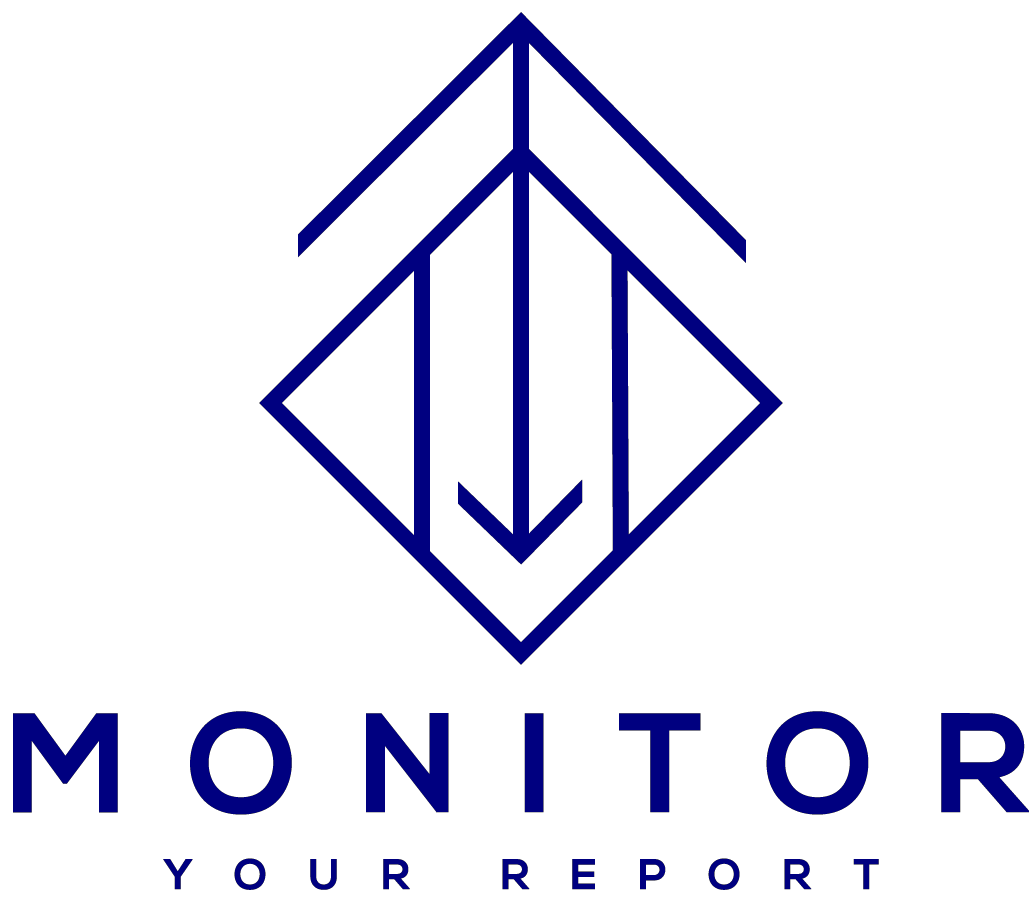How to Remove The Fraud Alert

How to Remove a Fraud Alert A fraud alert is a powerful tool that protects you when your personal information has been compromised. It notifies lenders and creditors that they must take extra steps to confirm your identity before approving new credit. While this is extremely useful when you’re dealing with identity theft, there may come a time when you no longer need the alert—such as after your situation is resolved or when you want to apply for new credit. Removing a frud alert is a straightforward process, but each credit bureau handles the removal a little differently. Below is a complete guide to removing a fraud alert from TransUnion, Experian, and Equifax, including detailed steps and additional tips to ensure your request goes smoothly. Removing a Fraud Alert from TransUnion TransUnion gives you the option to remove a fraud aleart online or by phone. If you already have a TransUnion account, this is often the simplest and fastest way to remove the alert. To remove a fraud alert online: Log in to your TransUnion account.If you don’t have one yet, you can create it using your personal information. Navigate to the “Credit Report” tab.This is where you’ll find tools related to managing your personal credit file. Click “Dispute” or a similar link.TransUnion updates their interface occasionally, but you’ll always find a section that allows you to manage alerts and disputes. Select “Add, Modify, or Remove a Potential Fraud Alert.”This takes you directly to the management area. Click “Continue.” Choose “Remove.” Click “Submit.” Confirm that the fraud alert has been removed.You may receive a confirmation email or message through your TransUnion dashboard. If you prefer to handle this by phone, or if you run into any issues online, you can call TransUnion directly at: TransUnion Fraud Alert Removal: (800) 916-8800 A representative will verify your identity and remove the alert for you. Removing a Fraud Alert from Experian Experian allows you to remove alert online, by upload, or by mail. Their process involves verifying your identity to ensure that no one else is trying to remove the alert without your permission. To remove a fraud alert online: Visit the Experian Fraud Alert Center. Click “Remove a fraud alert.” Complete the identity verification form.You will need personal details such as your full name, Social Security number, and current address. Upload the completed form to Experian’s secure upload page. If you prefer to mail your request, Experian also accepts alert removal by mail. To remove a fraud alert by mail: Print and complete Experian’s fraud alert removal form. Include a copy of a government-issued ID (driver’s license, state ID, or passport). Include a copy of a utility bill, bank statement, or insurance statement showing your current mailing address. Mail everything to: ExperianP.O. Box 9554Allen, TX 75013 Once Experian receives your request, they will review the documents, process the removal, and send you a confirmation. Removing a Fraud Alert from Equifax Equifax also allows alert removal by phone or by mail. They require identity verification to prevent unauthorized removal. To remove a fraud alert by phone: Equifax Fraud Alert Removal: (888) 836-6351 A representative will guide you through identity verification and remove the alert. To remove a fraud alert by mail: Send a written request along with identification verifying who you are. Include: A copy of your government-issued ID A document showing your current address (utility bill, insurance statement, or bank statement) Mail to: Equifax Information Services LLCP.O. Box 105069Atlanta, GA 30348-5069 Equifax will process your request and notify you once the fraud aleart has been removed. Final Tip Always keep copies of all forms, IDs, and correspondence for your records. After removing the alert, monitor your reports for several days to ensure everything updates correctly. see more
Rising Cost of Cyber Attacks- Recent News

Cyber attack? Today 1/14/2025, according to Financial Times, Robinhood is set to pay biggest fine of more than $100 Million imposed by SEC. 6 days ago, According to Wall Street Journal, Bayview Asset Management Entered Into a $20 Million Settlement Over Cybersecurity Weaknesses. In 2024 cyber attack, the financial sector experienced a notable increase in the cost of data breaches. According to IBM’s “Cost of a Data Breach Report 2024,” the average expense for financial institutions rose by approximately 3% to $6.08 million, surpassing the global average of $4.88 million. Given these rising costs, it’s imperative for financial institutions to invest in robust cybersecurity measures. One of the biggest expenses is credit monitoring provided to each affected individual, costing approximately $29 per month and often continuing for two years. We recommend registering for monitoring by going to: https://thecreditbureau.com/consumers The Credit Bureau Phone Number is: 800-518-1077
Cyber Crime Statistics 2023

In 2023, cyberattacks in the United States reached alarming levels, reflecting a global surge in cybercrime. Notable incidents included a breach at the U.S. State Department, where hackers gained access to tens of thousands of emails via Microsoft Exchange. Ransomware remained a widespread threat, targeting sectors such as healthcare, critical infrastructure, and government agencies. The overall cost of cybercrime is expected to increase dramatically, with global losses projected to reach $23.84 trillion by 2027, up from $8.44 trillion in 2022. In 2022, the FBI’s Internet Crime Complaint Center (IC3) reported $10.3 billion in losses due to cybercrime in the U.S. alone, reflecting a sharp rise in both the number of incidents and the financial toll. Ransomware, business email compromise, and data breaches continue to be the most common forms of attacks, driven largely by financial motives, though espionage and geopolitical tensions also play a significant role. Source: World Economic Forum Recommendation: Register for Identity Theft Protection www.thecreditbureau.com/consumers The Credit Bureau Phone lines are open to public. 800-518-1077
US Identity Theft Losses Topped $10 Billion in 2023

The number of fraud complaints reported to the FTC and affiliate agencies increased 1.6% in 2023 to 2,603,556, up from 2,563,678 in 2022. Total financial losses associated with fraud increased nearly 16% in 2023 to $10.3 billion, up from $8.9 billion in 2022. Meanwhile, median losses per reported fraud case dropped about 23% to $500 in 2023, down from $650 in 2022. The number of identity theft complaints filed during that same one-year period decreased by 6.3%, to 1,036,961 from 1,107,053. If you don’t have identity protection, its time. Purchase protection by going to this link: www.thecreditbureau.com/consumer-credit-report Our phone number is open to public. The Credit Bureau Phone Number is: 800-518-1077
Aftermath of Equifax Breach

Understanding the Equifax Breach: Why Fraud Alerts Alone Are Not Enough for Identity Theft Victims Equifax offered a 10-year free fraud alert program to individuals who registered after its highly publicized data breach. Equifax? While this program was intended to provide reassurance and protection, the reality for many consumers has been very different. For countless victims, receiving a fraud alert is not a solution—it is the beginning of confusion, stress, fear, and financial pain. A fraud alert may warn that something is wrong, but it does not explain what happened, why it happened, or how to fix it. As a result, victims are often left feeling overwhelmed and unsupported at the exact moment they need guidance the most. This article explores: Why fraud alerts alone are not enough The most common forms of identity theft following major data breaches Why victims struggle to resolve fraud on their own How customer care and education play a critical role in recovery How a structured support system helps victims regain control of their credit and financial lives The Reality of Life After a Data Equifax Breach Equifax? Data breaches do not end when the headlines fade. For victims, the consequences can last for years. Every day, individuals affected by identity theft contact credit bureaus and financial institutions seeking help. Many are confused, emotional, and frustrated. They know something is wrong—but they don’t know where the fraud originated, how long it has been happening, or how many accounts have been compromised. In many cases, victims discover the damage only after: Being denied credit Receiving collection calls for debts they do not recognize Seeing unfamiliar addresses or names on their credit report Noticing missing money from bank accounts A fraud alert may notify lenders to take extra steps to verify identity, but it does not stop fraud, remove fraudulent accounts, or restore credit history. The Most Common Identity Theft Issues Victims Face Equifax? Through years of assisting consumers, several fraud patterns consistently appear. These issues represent the majority of identity theft cases reported to credit bureaus. 1. Fraudulent Credit Cards Opened and Maxed Out One of the most common forms of identity theft involves credit cards opened in the victim’s name without authorization. Fraudsters: Apply for multiple credit cards Use them quickly to avoid detection Max out balances Abandon the accounts without making payments The victim is left with: Damaged credit scores Collection accounts Late payments Increased debt-to-income ratios Removing these accounts can take months or even years without proper assistance. 2. Unauthorized Loans That Are Never Repaid Identity thieves frequently use stolen personal information to obtain: Personal loans Auto loans Payday loans Installment financing Equifax? These loans are taken out, used, and never repaid. Victims often discover them only after default notices or legal threats arrive. Because loans have longer repayment terms and higher balances, the financial damage is often severe and long-lasting. 3. Address Changes on Credit Reports Equifax? Changing a victim’s address is a strategic move by fraudsters. Once the address is changed: Credit cards and bank statements are redirected Fraud alerts and verification letters never reach the victim The thief gains more time to exploit accounts This tactic delays detection and makes resolution significantly more difficult. 4. Goods Purchased and Delivered to Fraudulent Addresses In many cases, newly opened credit cards are used to purchase high-value goods such as: Electronics Gift cards Luxury items These items are delivered to addresses controlled by the fraudster, while the victim’s credit report reflects the fraudulent address change—creating a trail that further complicates disputes. 5. Bank Accounts Drained or Taken Over Bank account fraud is among the most emotionally distressing experiences for victims. Fraudsters may: Gain access to checking or savings accounts Change login credentials Transfer funds Open new accounts linked to stolen identities Victims often feel violated and powerless, especially when rent, bills, or payroll funds are affected. 6. Personal Information Altered on Credit Reports In advanced identity theft cases, fraudsters change key identifying information, including: Full name Address Phone number When this happens, victims may struggle just to access their own credit report, as verification systems no longer recognize them as the rightful owner. Why Most Victims Feel Lost and Overwhelmed Identity theft recovery is not intuitive. Most consumers: Do not understand credit reporting systems Are unfamiliar with dispute procedures Don’t know which bureau or creditor to contact first Receive conflicting advice from different institutions Without guidance, victims often: File disputes incorrectly Miss deadlines Become discouraged Give up before resolution This is why fraud alerts alone are insufficient. Awareness without action creates anxiety, not protection. The Real Solution: Customer Care and Education Equifax? At The Credit Bureau, we believe responsibility does not end with a warning—it begins with support. True identity theft recovery requires human care, clear education, and ongoing protection. Our 3-Fold Approach to Fraud Resolution 1. Respectful, Knowledgeable Customer Support When victims call our main phone line, they are treated with dignity and respect. Our approach includes: Listening carefully to the full story Explaining what is happening in plain language Identifying the specific type of fraud involved Creating a personalized resolution plan No scripts. No rushed conversations. Just real help when it matters most. 2. Education Through Clear, Actionable Content Confusion fuels fear. Education restores confidence. We provide educational resources and blog content that address: How identity theft happens How to read and understand credit reports What steps to take after a breach How disputes work How monitoring protects against future fraud Each resource is written to answer real questions real victims ask—without legal jargon or unnecessary complexity. 3. Ongoing Credit Monitoring and Protection Equifax? Identity theft does not end with one resolved issue. Victims are encouraged to enroll in credit monitoring services that: Track credit activity in real time Detect new fraudulent accounts early Alert consumers before damage escalates When issues arise, our U.S.-based customer service team is available to assist immediately—providing continuity, reassurance, and long-term peace of mind. A Program That Has Been Helping Victims Since 2023 This
What happened after I became a victim of fraud

Victim of Fraud? What to Do Immediately and How Credit Bureau Protection Can Restore Your Financial Life Discovering that you are a victim of fraud can be one of the most frightening and overwhelming experiences of your life. One moment everything feels normal, and the next you are staring at unfamiliar charges, collection notices, or accounts you never opened. Your sense of security disappears, replaced by confusion, fear, and unanswered questions. If this sounds familiar, you are not alone. Millions of Americans become victims of fraud and identity theft every year. According to data reported to the Federal Trade Commission, identity theft remains one of the most common consumer complaints nationwide. Fraud affects people of all ages, income levels, and backgrounds, and many victims have no idea where to begin once they discover something is wrong. This article explains: What it means to be a victim of fraud The emotional and financial impact of identity theft What steps to take immediately How a credit bureau fraud protection program can handle the recovery for you A real customer experience that shows how powerful professional protection can be If you are asking yourself, “What do I do now?”—this guide is for you. What Does It Mean to Be a Victim of Fraud? Fraud occurs when someone uses your personal or financial information without permission for their own benefit. This often includes: Credit cards opened in your name Loans or lines of credit you never applied for Unauthorized bank withdrawals Employment or unemployment fraud Tax fraud Investment or account takeovers In many cases, victims don’t find out until weeks or months later—when their credit score drops, they receive collection calls, or a legitimate transaction is declined. By the time fraud is discovered, the damage may already be extensive. The Emotional Toll of Fraud and Identity Theft Becoming a victim of fraud is not just a financial issue—it is deeply personal. Many victims report feeling: Fear and anxiety Anger and frustration Shame or embarrassment Helplessness and confusion One of the hardest parts is not knowing what to do next. Credit reports, banks, creditors, and government agencies all have different processes, and trying to manage everything alone can feel impossible. This is why having professional support matters. “I Was a Victim of Fraud and Had No Idea What to Do” When Melissa J from Florida discovered she was a victim of fraud, she felt exactly the way most people do—scared, confused, and unsure where to turn. “When I found out I was a victim of fraud, I was scared and had no idea what to do. I didn’t know where the problem started or how bad it was going to get.” Fortunately, Melissa already had a fraud protection and credit monitoring program in place with a credit bureau. Instead of facing the situation alone, she picked up the phone. That call changed everything. What Happened When She Contacted the Credit Bureau Here is what Melissa experienced after calling the credit bureau’s fraud protection team: 1. Clear Communication With U.S.-Based Specialists Melissa spoke with knowledgeable, U.S.-based representatives who explained everything in clear, understandable language. There was no confusion, no scripted responses—just real help from trained professionals who deal with fraud every day. 2. Immediate Activation of a $1,000,000 Protection Policy She was informed that her identity protection program included a $1,000,000 protection policy. This coverage was designed to help pay for losses and expenses related to identity theft, providing immediate peace of mind during a stressful time. 3. Full-Service Fraud Resolution The credit bureau took over the entire recovery process: Contacting creditors Disputing fraudulent accounts Working with banks and financial institutions Restoring credit records Monitoring for ongoing threats Melissa didn’t have to spend hours on the phone or fill out endless paperwork. “They took the job of fixing everything and did all the work. I did not lift a finger.” The Final Results: Financial Recovery and Peace of Mind After the fraud resolution process was complete, the outcome spoke for itself: ✅ Clean credit report ✅ Secure bank accounts ✅ Protected investments ✅ Ongoing monitoring for future threats “The end results were a clean credit report, safe and sound bank accounts, and investments. I will never live without this service.”— Melissa J, Florida(Picture used is a stock photo) Her experience highlights what many victims discover too late: fraud recovery is far easier when professionals handle it for you. Why Credit Monitoring Alone Is Not Enough Many people assume that basic credit monitoring is all they need. While monitoring alerts you when something changes, it does not fix the problem. When fraud happens, you need: Expert case management Legal and administrative support Creditor negotiations Credit restoration services Financial protection coverage A comprehensive credit bureau fraud protection program combines monitoring, insurance, and resolution services—not just alerts. What to Do Immediately If You Are a Victim of Fraud If you believe you are a victim of fraud, time is critical. Here are the steps experts recommend: Step 1: Contact a Credit Bureau Immediately Calling a trusted credit bureau can help you understand the scope of the damage and begin protection right away. Credit Bureau Phone Number:📞 800-518-1077 Step 2: Enroll in Credit Monitoring and Identity Protection Monitoring allows professionals to watch your credit file continuously and act quickly if new fraud appears. 👉 Register for monitoring here:Consumer Credit Report Step 3: Let Professionals Handle the Recovery Trying to resolve fraud alone can take hundreds of hours and still lead to mistakes. A managed recovery program removes the burden from you and ensures nothing is missed. How Fraud Protection Programs Actually Work A full-service fraud protection program typically includes: 24/7 credit monitoring Identity theft insurance coverage (up to $1,000,000 in some programs) Dedicated fraud resolution specialists Assistance with creditors and lenders Help restoring credit scores and reports This type of protection turns a chaotic, stressful situation into a structured recovery process. Why Millions of Americans Are Choosing Fraud Protection With data breaches, phishing scams, and cybercrime increasing every year,
Victim of Fraud? How to get help

Are you a victim of fraud? Do you need to know what to do? We’re here for you. At The Credit Bureau, we understand the challenges and stress that come with identity theft and financial scams. Our team of experts is ready to assist you. First thing to do is to register with the bureau by going to the following link: www.thecreditbureau.com/consumer-credit-report View your report to detect problems and concerns. Call us to get help on how to resolve issues. The Credit Bureau Phone number is: 800-518-1077.
Freezing Minor Children’s Credit Report

Freezing minor children credit report?You can freeze your minor children’s credit report using the following links. You need to freeze with all three bureau. Submit a Written Request: You’ll need to send a hard-copy letter to all three bureaus requesting a “protected consumer freeze” for the minor child. Include Necessary Information: In your letter, include your name, relationship to the child, the child’s name, and address. Provide Supporting Documents: You’ll need to include copies of documents proving: Your identity (e.g., driver’s license, birth certificate). Your child’s identity (e.g., birth certificate, Social Security card). Your authority to act on the child’s behalf (e.g., court order, birth certificate, proof of parentage). Mail the Request: Send the letters and documents to the following addresses: EquifaxP.O. Box 740256Atlanta, GA 30374-0256 ExperianP.O. Box 4500Allen, TX 75013 TransUnionP.O. Box 2000Chester, PA 19016 Important Notes: Must be done by mail: You cannot place a child on freeze online or by phone. All three bureaus: You’ll need to separately freeze the child’s credit reports with all three nationwide credit reporting agencies (TransUnion, Equifax, and Experian). Verify your identity: You’ll need to provide proof of your identity and relationship to the child, along with proof of the child’s identity. Remember that the credit bureau phone number is open to public: 800-518-10177
The Fair Credit Reporting Act/Credit Repair

Credit Repair? The Fair Credit Reporting Act Benefits Credit-Active Consumers The Fair Credit Reporting Act (FCRA) law went into effect in 1971 and was amended considerably in 1997 by Congress. The original FCRA protected your rights as a credit-active consumer by limiting who has access to your credit report. It mandated that, while you yourself may request a copy at any time, no one else may legally review your report unless they intend to: The 1971 FCRA also stated that your credit report may be accessed in response to a court order or federal grand jury subpoena. Fines up to $5,000 and imprisonment for up to one year are consequences of knowingly and willfully obtaining a credit report under false pretenses. The 1997 version of the FCRA further protects credit-active consumers and gives them more control over their credit information. Highlights of the updated version of the FCRA are summarized below: Credit Reports Credit Disputes Credit Accuracy Credit Offers Credit ClinicsCredit repair clinics will charge consumers up to thousands of dollars to allegedly “repair” less than perfect credit reports. Although these clinics claim the ability to dispose of negative credit information from a consumer’s file, if the negative information is accurate, it has to stay on the credit report for up to 10 years. This is federally mandated. If the consumer pays the credit repair clinic before the service is performed, the consumer can expect to lose a large amount of money. The new law prohibits credit repair clinics from collecting a fee before a service is performed.
Impact of Wells Fargo’s Unauthorized Accounts on Credit Reports

NPR News. Heard on All Things Considered. Sep 26, 2016. This month federal regulators fined wells Fargo $185 million for opening checking and credit card accounts on behalf of customers without their permission. The bank has promised to try to make restitution. What we would suggest: 1- Check your bank and credit card account and review them carefully for five years. Do not wait for a phone call. 2- Go to www.annualcreditreport.com and get a free copy of your credit report from Equifax, Experian and Trans Union. Look for negative signs and late payments. 3- Look to see if closing the credit card has a negative impact on your credit report. 4- Look for transactions and money moved without your permission. According to CFPB if you did not get a refund you feel you deserve, report the issue to the CFPB on its website or call 855-411-2372.

